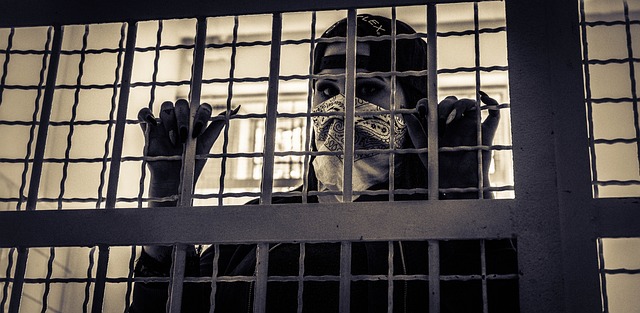Millennials are driving digital activism for reform in youth justice systems, focusing on DUI issues through online campaigns that educate peers about consequences. These campaigns challenge systemic barriers and biases, advocating for fairer sentencing, rehabilitation, and support services tailored to young offenders' needs. Targeting drivers aged 18-34 via social media and interactive platforms, Millennial DUI Awareness Campaigns have proven effective in reducing impaired driving among young people, leading to safer roads. A complex approach combining educational campaigns and systemic reform is needed, emphasizing responsible behavior, alternative transportation, restorative justice, counseling, and support services.
Youth justice and fair treatment are paramount concerns, especially when addressing Millennial DUI (driving under the influence) issues. This article explores the unique perspective of young adults aged 18-35 towards DUI, highlighting the need for tailored awareness campaigns. We delve into the impact of targeted initiatives on reducing juvenile intoxication driving, while offering strategies to reform the justice system and prevent Millennial DUI. By understanding their motivations and challenges, we can create effective solutions that promote road safety and social justice.
- Understanding Youth Justice and Fair Treatment: A Millennial Perspective on DUI
- The Impact of Targeted DUI Awareness Campaigns on Young Drivers
- Strategies for Effective Millennial DUI Prevention and Reform in the Justice System
Understanding Youth Justice and Fair Treatment: A Millennial Perspective on DUI

In today’s digital era, Millenials are leveraging their online platforms and voices to advocate for fair treatment in youth justice systems, particularly focusing on issues like DUI (Driving Under the Influence). This generation understands that drunk driving is not just a public safety concern but also a critical aspect of their own lives. As such, Millennial DUI awareness campaigns have emerged as powerful tools to educate peers about the consequences and promote responsible behavior. These campaigns utilize social media, online forums, and collaborative content creation to reach a wide audience, emphasizing the impact on young lives and future opportunities.
The perspective of Millenials brings a fresh approach to youth justice reform by challenging traditional narratives around DUI. They recognize that young individuals, especially those from diverse backgrounds, often face systemic barriers and biases within the criminal justice system. Through their activism, these campaigns promote understanding and empathy, encouraging fairer sentencing, rehabilitation programs, and support services tailored to the unique needs of young offenders. By shedding light on the long-term effects of a DUI conviction on future education, employment, and social opportunities, Millennial initiatives aim to foster a culture of responsibility and compassion.
The Impact of Targeted DUI Awareness Campaigns on Young Drivers

Millennial drivers, aged between 18 and 34, are a demographic that has witnessed the rise of targeted DUI awareness campaigns in recent years. These initiatives, specifically tailored to educate and deter young people from driving under the influence, have shown promising results. By utilizing modern communication channels such as social media and interactive online platforms, these campaigns effectively reach Millennial drivers where they spend much of their time. The impact includes increased awareness about the dangers of drunk driving, a behavior that can lead to severe consequences, including loss of life and legal repercussions.
Through engaging content featuring real-life stories and impactful statistics, young drivers are encouraged to make responsible choices. Studies have indicated a positive correlation between these targeted Millennial DUI awareness campaigns and reduced rates of impaired driving among the target age group. This shift in behavior reflects a deeper cultural change, where younger generations are becoming more conscious of their actions’ repercussions, contributing to safer roads for everyone.
Strategies for Effective Millennial DUI Prevention and Reform in the Justice System

The justice system’s approach to DUI (Driving Under the Influence) cases, particularly involving millennials, requires a multifaceted strategy for effective prevention and reform. Millennial DUI Awareness Campaigns can play a pivotal role in educating young adults about the risks associated with alcohol consumption and driving. These campaigns should utilize innovative methods such as social media engagement, peer-to-peer education, and interactive workshops to capture the attention of this demographic. By promoting responsible drinking habits and alternative transportation options, these initiatives can significantly reduce DUI incidents among millennials.
Furthermore, addressing disparities in sentencing and treatment within the justice system is essential. Reform efforts should focus on ensuring fair and equitable outcomes for young offenders, considering social and economic factors that might contribute to DUI behavior. This includes implementing restorative justice practices, offering specialized counseling programs, and providing support services to help millennials overcome addiction and make positive choices. Through these strategies, the justice system can effectively prevent millennial DUI cases while fostering a culture of accountability and rehabilitation.
In conclusion, addressing Millennial DUI (Driving Under the Influence) requires a multi-faceted approach. By understanding the unique perspectives of young adults, such as those from a millennial perspective, and implementing targeted awareness campaigns, we can significantly reduce DUI incidents among this demographic. Strategies for effective prevention and reform within the justice system must evolve to meet the needs of contemporary youth. Through continued research and collaborative efforts, we can foster fair treatment and create a safer environment for young drivers. The impact of these initiatives lies in their potential to revolutionize youth justice, ensuring that Millennial DUI rates decrease while promoting responsible driving behaviors.






